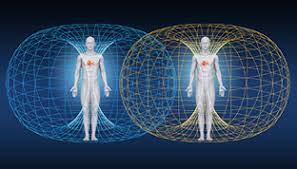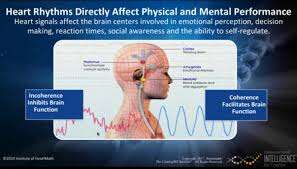Emotions have a powerful impact on one’s mental and physical health. Studies show that emotions such as stress, anxiety, and depression can lead to negative health outcomes like high blood pressure, heart disease, and weakened immune systems. In contrast, positive emotions like happiness, joy, and love are associated with better health outcomes, including a stronger immune system and a lower risk of chronic diseases. Therefore, understanding the connection and the effects of emotions on health is critical for well-being. Learning emotional regulation is beneficial to everyone.
Research has shown that emotions can affect the body in several ways. For example, stress can cause the release of cortisol, a hormone that can lead to inflammation and weaken the immune system. Chronic stress can also lead to a range of health problems, including anxiety, depression, and heart disease. On the other hand, positive emotions like love and gratitude can activate the body’s relaxation response, reducing stress and promoting feelings of well-being.
In conclusion, emotions have a significant impact on one’s overall health. Negative emotions like stress and anxiety can lead to a range of health problems, while positive emotions like love and gratitude can promote better health outcomes. It is important to be aware of one’s emotions and take steps to manage them effectively to promote better health and well-being.
Fundamental Understanding of Emotions

Emotions are a complex and integral part of human behavior and experience. They can be defined as a subjective state of mind that is usually accompanied by physiological changes, such as changes in heart rate, breathing, and muscle tension. Emotions are often triggered by external or internal stimuli and can be expressed in a variety of ways, such as facial expressions, body language, and verbal communication.
There are many different theories about the nature and function of emotions. One of the most influential theories is the basic emotion theory, which suggests that there are a small number of innate and universal emotions that are biologically and evolutionarily determined. These basic emotions include happiness, sadness, anger, fear, surprise, and disgust. Each basic emotion is associated with a unique pattern of physiological responses and facial expressions.
However, other theories propose that emotions are more complex and context-dependent and that they are shaped by individual experiences, cultural norms, and social expectations. For example, the cognitive appraisal theory suggests that emotions are the result of a person’s evaluation of a situation and that different people can have different emotional responses to the same situation based on their beliefs, values, and past experiences.
Regardless of the specific theory, most researchers agree that emotions play an important role in human health and well-being. Negative emotions, such as stress, anxiety, and depression, have been linked to a range of physical and mental health problems, including cardiovascular disease, immune dysfunction, and chronic pain. On the other hand, positive emotions, such as joy, gratitude, and contentment, have been associated with better health outcomes and greater resilience in the face of adversity.
Overall, emotions are a complex and multifaceted phenomenon that can have a significant impact on human health and well-being. Understanding the nature and function of emotions is an important step toward developing effective strategies for promoting emotional health and preventing emotional disorders.
The Positive Impact of Emotions on Health

Positive emotions have been found to have numerous benefits on health. From boosting immunity to promoting longevity, positive emotions can enhance overall well-being. Here are some of the ways positive emotions can positively impact health:
Boosting Immunity
Research has shown that positive emotions can boost the immune system, helping individuals fight off illnesses and diseases. According to a study published in the journal Psychosomatic Medicine, people who experienced positive emotions had higher levels of antibodies, which are proteins that help the immune system fight off infections.
Promoting Longevity
Positive emotions have also been linked to increased longevity. A study published in the Journal of Personality and Social Psychology found that people who experienced more positive emotions lived longer than those who experienced more negative emotions. The study suggests that positive emotions may help protect against age-related diseases and increase overall lifespan.
Enhancing Brain Function
Positive emotions can also enhance brain function. According to a study published in the journal Cerebral Cortex, people who experienced positive emotions had increased activity in the prefrontal cortex, a part of the brain responsible for cognitive control and decision-making. This increased activity can lead to improved cognitive function and better decision-making skills.
In conclusion, positive emotions can have a significant impact on overall health. From boosting immunity to promoting longevity and enhancing brain function, incorporating positive emotions into daily life can lead to a happier, healthier life.
The Negative Effects of Emotions on Health

Emotions can have both positive and negative effects on health. Negative emotions, such as chronic stress, depression, and anxiety, can have a significant impact on physical and mental health.
Consequences of Chronic Stress
Chronic stress can affect the body in many ways. It can upset the body’s hormone balance, deplete the brain chemicals required for happiness, and damage the immune system. Chronic stress can also increase the risk of heart disease, stroke, and other chronic health conditions. A study by the American Psychological Association found that chronic stress can actually decrease lifespan.
Depression and Physical Health
Depression is a common mental health disorder that affects millions of people worldwide. It can also have a significant impact on physical health, increasing the risk of heart disease, stroke, and other chronic health conditions. It can also lead to decreased energy, difficulty sleeping, and decreased appetite, which can further impact physical health.
Anxiety Disorders and Their Impact
Anxiety disorders are a group of mental health disorders characterized by excessive worry and fear. They can have a significant impact on physical health, increasing the risk of heart disease, stroke, and other chronic health conditions. Anxiety disorders can also lead to decreased energy, difficulty sleeping, and decreased appetite, which can further impact physical health.
Negative emotions can have a significant impact on physical and mental health. Chronic stress, depression, and anxiety can increase the risk of chronic health conditions and decrease lifespan. It is important to manage negative emotions and seek professional help if necessary to maintain good physical and mental health.
The Role of Emotional Intelligence in Health

Emotional Intelligence (EI) is an important component of mental and physical health. It refers to the ability to identify and regulate one’s own emotions, recognize the emotions of others, and use this information to communicate effectively and build healthy relationships. EI has been linked to improved mental health, better coping skills, and reduced stress levels.
In healthcare, emotional intelligence is crucial for building strong patient-provider relationships. Providers with high EI are better able to understand and empathize with their patients, communicate effectively, and provide patient-centered care. This, in turn, leads to improved patient outcomes and satisfaction.
Studies have also shown that EI can have a significant impact on physical health. High EI has been associated with lower blood pressure, reduced inflammation, and improved immune function. This is likely due to the fact that individuals with high EI are better able to manage stress and regulate their emotions, which can have a positive effect on overall health.
It is important to note that EI is not a fixed trait and can be developed through practice and training. Healthcare organizations can provide training and support to help providers improve their EI skills and provide patient-centered care. Additionally, individuals can work on improving their own emotional intelligence through mindfulness practices, self-reflection, and seeking feedback from others.
In conclusion, emotional intelligence plays a crucial role in both mental and physical health. Healthcare providers and individuals alike can benefit from developing their EI skills to improve patient outcomes and overall well-being.
Emotional Health and its Relation to Physical Health

Emotional health and physical health are closely intertwined. A person’s emotional state can have a significant impact on their physical well-being. Studies have shown that people who experience more positive emotions tend to live longer than those who experience more negative emotions.
One reason for this is that negative emotions can lead to stress, which can have detrimental effects on the body. Stress can cause a range of health problems, including high blood pressure, heart disease, and stroke. On the other hand, positive emotions can help reduce stress and promote overall health and well-being.
Another way that emotional health affects physical health is through the immune system. The immune system is responsible for fighting off infections and diseases. When a person is under stress or experiencing negative emotions, their immune system may not function as well as it should. This can make them more susceptible to illnesses and infections.
In addition, emotional health can also affect a person’s sleep. People who are experiencing negative emotions may have trouble falling asleep or staying asleep, which can lead to fatigue and other health problems. On the other hand, people who experience positive emotions tend to sleep better and wake up feeling more rested.
Overall, emotional health is an important component of overall health and well-being. By taking care of their emotional health, people can improve their physical health and reduce their risk of developing a range of health problems.
Conclusion
Emotions play a significant role in an individual’s physical and mental well-being. Negative emotions such as stress, anxiety, and depression can lead to a wide range of health problems. They include high blood pressure, heart disease, and a weakened immune system, which opens the door for illness. On the other hand, positive emotions such as happiness, gratitude, and contentment. They can have a positive impact on health and well-being.
Research has shown that people who are emotionally well have fewer negative emotions. They are able to bounce back from difficulties faster. This quality is called resilience, and it is an essential component of emotional wellness. Additionally, being able to hold onto positive emotions longer and appreciate the good times is another sign of emotional wellness.
It is important to recognize and acknowledge emotions as they arise, rather than suppressing or ignoring them. Repressed emotions, especially fearful or negative ones, can zap mental energy, negatively affect the body, and lead to health problems. Therefore, it is essential to address emotions and deal with them in a healthy and constructive way.
Emotions are an integral part of an individual’s health and well-being. It is crucial to maintain emotional wellness by recognizing and addressing emotions as they arise. Cultivating positive emotions such as happiness, gratitude, and contentment are powerful emotions for health and well-being.
Trauma Bond Relationships https://1111newme.com/2023/08/06/trauma-bond-relationships-understand-and-overcome/

